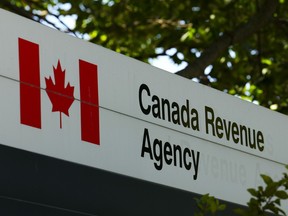Unlike buying a primary residence, where I believe you should buy one as soon as you can afford to, purchasing a vacation property is a different matter.
Nobody needs to buy a vacation property; it’s a luxury expense that everyone can do without. Chances are, you won’t use your vacation property enough times a year to justify the expense, making it likely to be a suboptimal investment.
My own experience has left me somewhat jaded. I bought a vacation property in Palisades Lake Tahoe in 2007, just a year after the property market peaked. Despite getting about a 15% discount from its 2006 price, the property continued to decline in value by 50% during the depths of the global financial crisis!
Certainly, my perspective might have been more positive if I had purchased the vacation property at the market’s bottom. However, I still maintain that owning a vacation property is a suboptimal investment.
A Vacation Property Becomes Worth It After Having Children
As a single individual or couple, you’re unlikely to use your vacation property enough times a year to justify owning it. After all, most Americans take vacations totaling less than 30 days a year, and it’s doubtful you’ll spend all 30 days in your vacation property.
During the 330+ days you don’t use your property, it’s essential to rent it out as much as possible. Otherwise, you’ll find yourself in the red with property taxes, potential HOA fees, and maintenance expenses. It would be wiser to forgo owning a vacation property and instead use your cash to vacation wherever you desire in the world.
Even with all the freedom I had after 2012, I didn’t spend more than 30 days a year using my vacation property after retirement. With just my wife and me visiting, we preferred to diversify our travels to Hawaii and explore Europe.
However, once you have children, the value of a vacation property skyrockets. Let me share the five main reasons why.
1) More people get to enjoy the vacation property
The more individuals who can enjoy the vacation property, the more valuable your vacation property becomes. My wife and I enjoy our vacation property, but a two-bedroom, two-bathroom condo for just the two of us was too much for the first 12 years we owned it. We could have saved a bunch of money just renting a hotel room instead.
Below is the exact layout of our vacation property. It can comfortably accommodate four people and up to eight if necessary. With two kids now, we can now utilize the entire property, with my wife and I on the king-size bed and our two children in each queen-size bed. Alternatively, we can each have our own beds given we have a sofa bed.
Fortunately, we can rent out our vacation property in three separate configurations: 1) two bedrooms, 2) one-bedroom suite, 3) studio with two queens. Therefore, it wasn’t the biggest waste since could often still rent out one side if we were vacationing up there.
2) The cost of the vacation property gets amortized across more people
The more children you have, the more the cost of the vacation property is spread out.
Our vacation property rents out for between $500 and $1,500 a night, depending on the time of year. If it were just my wife and me, the cost would be $250 to $750 per person per night. However, with four of us now, the cost per night comes down to $125 to $375.
All expenses, from the HOA fee to the maintenance expenses to the annual property taxes, are divided among four people. Consequently, the vacation property feels like much better value.
Our vacation property can sleep three kids and two adults comfortably. So if we wanted to spread the costs out even more, then we should have another kid. Alas, we are too old.
3) More comfortable living arrangements for a family
Airbnb has a clever commercial that underscores the challenges of renting only a room for a family vacation. It’s less than ideal when your bedroom doubles as your living room, kitchen, and dining area. If you have a little one who doesn’t sleep through the night, it can disrupt everyone’s sleep.
Due to budget constraints, most families can’t afford a vacation rental as spacious as their primary residence. Consequently, going on vacation often means downgrading in accommodations.
However, if you own a vacation property that suits your family’s needs, you’ll enjoy a better layout and a more comfortable vacation. This is one reason why owning a vacation property becomes more appealing after having kids. Once you’re finished or nearly finished having children, you can invest in a vacation property of an appropriate size.
As a single man, I took a risk in 2007 by purchasing a two-bedroom, two-bathroom condo spanning a little over 1,000 square feet. For ten years following my purchase, it seemed like a wasted investment—an unnecessary and overly spacious vacation property for my household. It felt like I was driving a large SUV with only me or me and my wife inside.
However, in July 2019, I finally brought our two-year-old son to our vacation property. That marked the beginning of feeling like our property was worth it. When we vacationed with our 10-month-old daughter during the pandemic in October 2020, I finally felt that the vacation property had fulfilled its potential.
4) A stable second home for kids to build lifelong memories
One of the wonderful aspects of owning a vacation property is the familiarity it offers. Children become accustomed to the property and its surroundings, fostering a greater sense of comfort. You can keep pictures, clothes, toys, and stuffed animals at your vacation property, making it feel like a second home.
We have two owner’s lockers: one in the unit where we store our personal belongings and another in an owner’s lounge on a different floor, where we keep all our ski and snowboard gear. It’s a luxury not to have to haul all our gear and personal items every time we visit Lake Tahoe.

Moreover, it’s enjoyable to become acquainted with the town surrounding your vacation property. You’ll get to know restaurant and bar owners, discover secret hiking and skiing trails, and participate in local events. Over time, you may even develop friendships that create a stronger sense of community.
While kids love going on adventures, younger children especially appreciate the familiarity of a second home. Routine is essential for their sleep, mood, appetite, and bathroom regularity, making a second home an ideal retreat for family vacations.
5) You give yourself more time to build more wealth
Kids are undoubtedly expensive and demand a significant amount of time and energy. Therefore, it’s wise to accumulate as much wealth as possible before they arrive.
Once your kids are here, you’ll naturally want to spend time with them, which often translates to less time at work. While not always the case, less time spent working sometimes means less income growth.
Prior to starting a family, devote as much time and energy as you deem reasonable to building wealth. You might even consider setting a net worth target before having kids. This way, when they do arrive, you’ll experience far less financial stress and can better prioritize your spending.
The only drawback to waiting until after having kids to buy a vacation property is that its value may appreciate faster than your income can keep up. However, if that’s the case, wonderful! Just rent a hotel room or home. It’s much less hassle and efficient.

Finally Excited To Go To Our Vacation Property More Often
After experiencing an incredible family ski vacation in April 2024, I’m thrilled about visiting our vacation property in Lake Tahoe more frequently. There was a three-year period when my enthusiasm for going wasn’t high, although we still made the trips.
Previously, our focus was primarily on summer visits for hiking and water sports. Now, with the added dimension of skiing, we plan to visit three times a year, every year until our kids graduate high school. This translates to 12-14 years of new family experiences and bonding.
Wait Until Your Youngest Turns At Least Three Before Buying
Buying a vacation property should be primarily a lifestyle decision, with investment considerations coming second.
Ideally, hold off on buying until your last child turns three. Before reaching that age, children typically aren’t too concerned about where they vacation. As long as there’s a pool close by, good weather, a playground, fun activities, and loving parents, that’s all that matters to them.
However, if you’re eager to buy a vacation property and uncertain about the number of children you’ll eventually have, here’s a compromise: wait until your first child turns five. Even if your other children won’t fully appreciate the vacation property until they’re older, you’ll still be able to create enjoyable new experiences for your eldest.
Reflecting on my own experience, if I had waited to buy a vacation property until my first child turned five in 2022, rather than in 2007, I would likely be over $400,000 richer today. With Treasury bond yields at 5% or higher, I could earn an additional risk-free passive income of $20,000 a year.
Unfortunately, it’s too late for me to change that decision. However, I can share my experience with you so that you can make a more informed decision when it comes to purchasing a vacation property.
Best of luck with buying something you don’t need!
Reader Questions
Anybody buy a vacation property before having children and regret it? What do you think of my recommendation of buying a vacation property after having children? What did you do with your vacation property after your kids left the house?
Invest In Real Estate More Strategically
Instead of purchasing a vacation property, consider investing in passive real estate investments across the country for potentially better returns.
Consider Fundrise, a leading private real estate investment firm with over $3.3 billion in assets under management. Fundrise primarily focuses on residential and industrial real estate in the Sunbelt region, where valuations tend to be lower and yields tend to be higher.
By investing in real estate through platforms like Fundrise, you can generate passive income that can be used to finance luxurious vacations anywhere in the world. After all, simplicity often leads to happiness.
Personally, I’ve allocated $954,000 to private real estate funds, primarily targeting properties in the heartland. With remote work becoming more common, it’s reasonable to expect that Americans will increasingly gravitate toward lower-cost areas of the country.
Fundrise is a sponsor of Financial Samurai and Financial Samurai is an investor in Fundrise.




















Discussion about this post